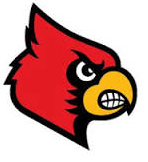Recovery of Bladder and Sexual Function After Spinal Cord Injury
| Status: | Recruiting |
|---|---|
| Conditions: | Hospital, Hospital, Orthopedic |
| Therapuetic Areas: | Orthopedics / Podiatry, Other |
| Healthy: | No |
| Age Range: | 18 - Any |
| Updated: | 4/17/2018 |
| Start Date: | September 2014 |
| End Date: | September 2019 |
| Contact: | Charles Hubscher, PhD |
| Email: | charles.hubscher@louisville.edu |
| Phone: | 502-852-3058 |
Effects of Activity Dependent Plasticity on Recovery of Bladder and Sexual Function After Human Spinal Cord Injury
Bladder and sexual dysfunction consistently ranks as one of the top disorders affecting
quality of life after spinal cord injury. The insights of how activity-based training affects
bladder function may prove to be useful to other patient populations with bladder and sexual
dysfunction such as multiple sclerosis, Parkinson's, and stroke, as well as stimulate
investigations of training's effects within other systems such as bowel dysfunction.
Locomotor training could help promote functional recovery and any insights gained from these
studies will enhance further investigation of the effect of bladder functioning after spinal
cord injury. In addition, as suggested by a study of one of our initial participants, a
reduction in the use and/or dosage of medication to enhance sexual function is a possible
outcome, medications which carry risks and side effects.
quality of life after spinal cord injury. The insights of how activity-based training affects
bladder function may prove to be useful to other patient populations with bladder and sexual
dysfunction such as multiple sclerosis, Parkinson's, and stroke, as well as stimulate
investigations of training's effects within other systems such as bowel dysfunction.
Locomotor training could help promote functional recovery and any insights gained from these
studies will enhance further investigation of the effect of bladder functioning after spinal
cord injury. In addition, as suggested by a study of one of our initial participants, a
reduction in the use and/or dosage of medication to enhance sexual function is a possible
outcome, medications which carry risks and side effects.
Objectives: To determine the effects of weight-bearing task-specific training for locomotion
(stepping on a treadmill) after traumatic incomplete and complete spinal cord injury in
humans on a) urodynamic parameters and b) sexual function outcomes. Weight-bearing
(stand-only) and non-weight-bearing exercise (i.e. arm crank) will serve as controls.
(stepping on a treadmill) after traumatic incomplete and complete spinal cord injury in
humans on a) urodynamic parameters and b) sexual function outcomes. Weight-bearing
(stand-only) and non-weight-bearing exercise (i.e. arm crank) will serve as controls.
Criteria: Inclusion Criteria:
- stable medical condition without cardiopulmonary disease or dysautonomia that would
contraindicate locomotor training, stand, or non-weight bearing training
- no painful musculoskeletal dysfunction,
- unhealed fracture, contracture, pressure sore or urinary tract infection that might
interfere with training
- no clinically significant depression or ongoing drug abuse;
- clear indications that the period of spinal shock is concluded determined by presence
of muscle tone, deep tendon reflexes or muscle spasms and discharged from standard
inpatient rehabilitation
- non- progressive suprasacral spinal cord injury
- bladder and sexual dysfunction as a result of spinal cord injury
Exclusion criteria:
- unstable medical condition with cardiopulmonary disease or dysautonomia that would
contraindicate locomotor training, stand, or non-weight bearing training;
- painful musculoskeletal dysfunction, unhealed fractures, contractures, pressure sores
or urinary tract infections that might interfere with training
- clinically significant depression or ongoing drug abuse;
- clear indications that the period of spinal shock has not concluded and not discharged
from standard inpatient rehabilitation
- progressive spinal cord injury
- no bladder and sexual dysfunction as a result of spinal cord injury
We found this trial at
1
site
500 S Preston St
Louisville, Kentucky
Louisville, Kentucky
(502) 852-5555

Principal Investigator: Susan J Harkema, PhD
Phone: 502-581-7443
University of Louisville The University of Louisville is a state supported research university located in...
Click here to add this to my saved trials